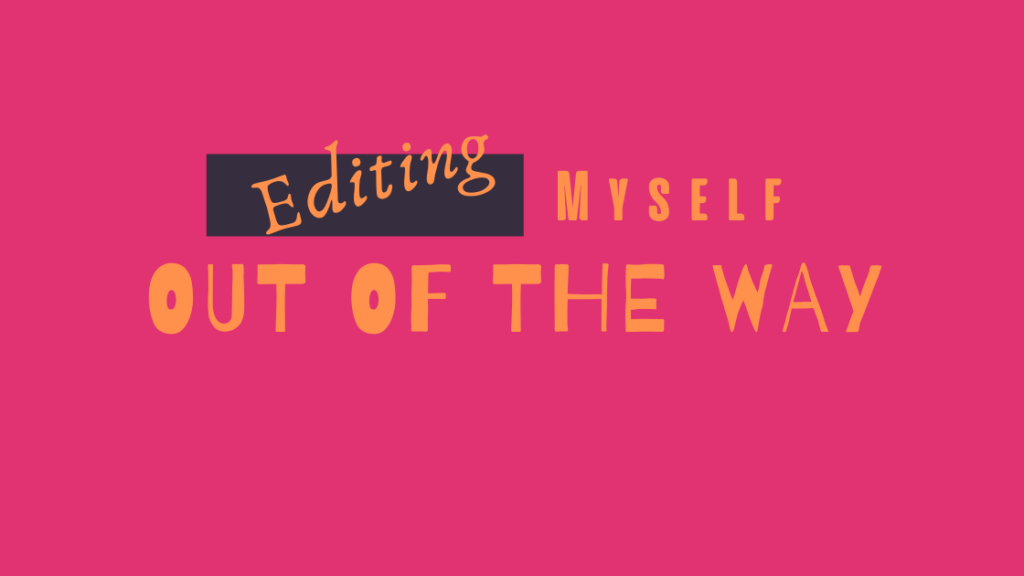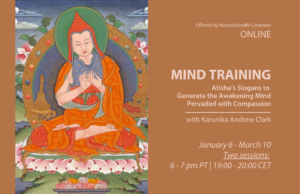Before I studied Buddhism, I studied writing and published a few poems. But was poetry my purpose? Would my poems really help anyone? For years those questions popped up.
At last I landed on a use for my writing craft: editing. I could help authors produce books intended to reduce suffering. I could help make their books more engaging, giving them greater impact.
As the “expert,” I thought I was bestowing the “good stuff” on my author-clients. But I discovered that my approach wasn’t always of benefit. After a tense exchange with an author I wanted to “help,” the thought occurred that perhaps, after all, I was not always right.
In his book Wild Awakening, Dzogchen Ponlop Rinpoche says, “Confronting ego is like confronting a friend with the discovery of dishonesty in our relationship.” It’s an awkward conversation but necessary. Was ego sabotaging my aspiration to be of service to authors and their audiences?
The Surprise Inside
I had to change my approach. With clients, I began to consciously, if reluctantly, shift away from insisting. I paused to really listen. When I loosened my favored viewpoint, something fascinating happened: I spoke gentle words of encouragement instead of criticism. And then? The author’s inspiration took off in wonderful ways. Exhilarating! Could this be service?
It’s no picnic releasing attachment. We hold on, even when it hurts. But I was determined to serve the author’s purpose, and not my interpretation. The author was the expert; my job was to help them manifest their intention.
Book after book, I bumped my head on my attachments. But those bumps brought new joy and effortlessness to the work. I stopped caring about credit and delighted in seeing the books reach people who needed help.
Finally, I grew able to edit without the ego taking over. I appreciated my literary training but mainly listened for what clicked. Work was fun! And like meditation, rejuvenating.
Now, when an author hits an obstacle, we revisit their intention. “What is the experience you most want people to have when they read your book?” As they describe their heartfelt desire to relieve others’ suffering, I fall in love with that impulse all over again. The intention to be of service isn’t mine or theirs. It’s ours, and we serve best when we serve together.
Stepping Back to Listen: An Exercise
- Before any exchange begins, decide to set aside your own opinion. Listen for the other person’s positive intention. What are they seeking to accomplish?
- When you think you’ve understood, check by describing their intention in your own words: “It sounds like you want to help ____ to happen. Is that right?”
- Allow them space to clarify. Keep listening and restating until they agree you’ve understood their intention.
- Before expressing your own view, consider how you could support theirs. Relax. Breathe.
- Acknowledge that there is no such thing as perfect collaboration. But each attempt builds more meaningful connection.

Ceci Miller has been a student of Dzogchen Ponlop Rinpoche since 2009. She is a book editor and author. Through CeciBooks publishing consultancy, she helps authors and experts develop their work and expand its beneficial impact. A mother and grandmother, Ceci lives with her husband in Seattle, Washington.






